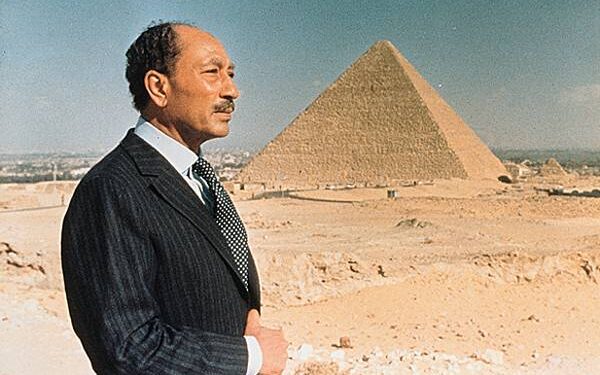Anwar Sadat, Egypt’s third president, left an indelible mark on his nation and the Middle East during his tenure from 1970 to 1981. A complex and often controversial figure, Sadat’s leadership was characterized by bold decisions that reshaped Egypt’s political landscape and its relationships with global powers.
Born in 1918 in Mit Abu al-Kum, a small village in the Nile Delta, Sadat rose through the ranks of the Egyptian military and played a crucial role in the 1952 revolution that overthrew the monarchy. As a key member of the Free Officers movement alongside Gamal Abdel Nasser, Sadat helped establish the new republican government.
Upon assuming the presidency after Nasser’s death in 1970, Sadat inherited a nation facing significant challenges. Egypt was still reeling from its defeat in the 1967 Six-Day War with Israel and was heavily dependent on Soviet support. Sadat’s early years in office were marked by his efforts to assert Egypt’s independence and revitalize its economy.
In 1973, Sadat made a decisive move by launching the October War (also known as the Yom Kippur War) against Israel. Although the conflict ended in a military stalemate, it was seen as a political victory for Egypt and helped restore national pride. This set the stage for Sadat’s most famous and controversial action: pursuing peace with Israel.
In a historic move that shocked the Arab world, Sadat traveled to Jerusalem in 1977 to address the Israeli Knesset. This unprecedented step led to the Camp David Accords in 1978 and the Egypt-Israel Peace Treaty in 1979. For his efforts, Sadat shared the Nobel Peace Prize with Israeli Prime Minister Menachem Begin.
Domestically, Sadat implemented the Infitah (Open Door) policy, moving away from Nasser’s socialist model towards a more market-oriented economy. This shift attracted foreign investment but also widened the gap between rich and poor, leading to social unrest.
Sadat’s presidency came to a tragic end on October 6, 1981, when he was assassinated by Islamic extremists during a military parade in Cairo. His death highlighted the deep divisions within Egyptian society, particularly regarding his peace initiatives with Israel and his crackdown on opposition groups.
Anwar Sadat’s legacy remains complex and debated. While celebrated internationally for his peace efforts, he remains a divisive figure in Egypt and the broader Arab world. Nonetheless, his presidency marked a pivotal period in Egyptian history, reshaping the country’s trajectory and leaving an enduring impact on regional geopolitics.
newshub



Recent Comments